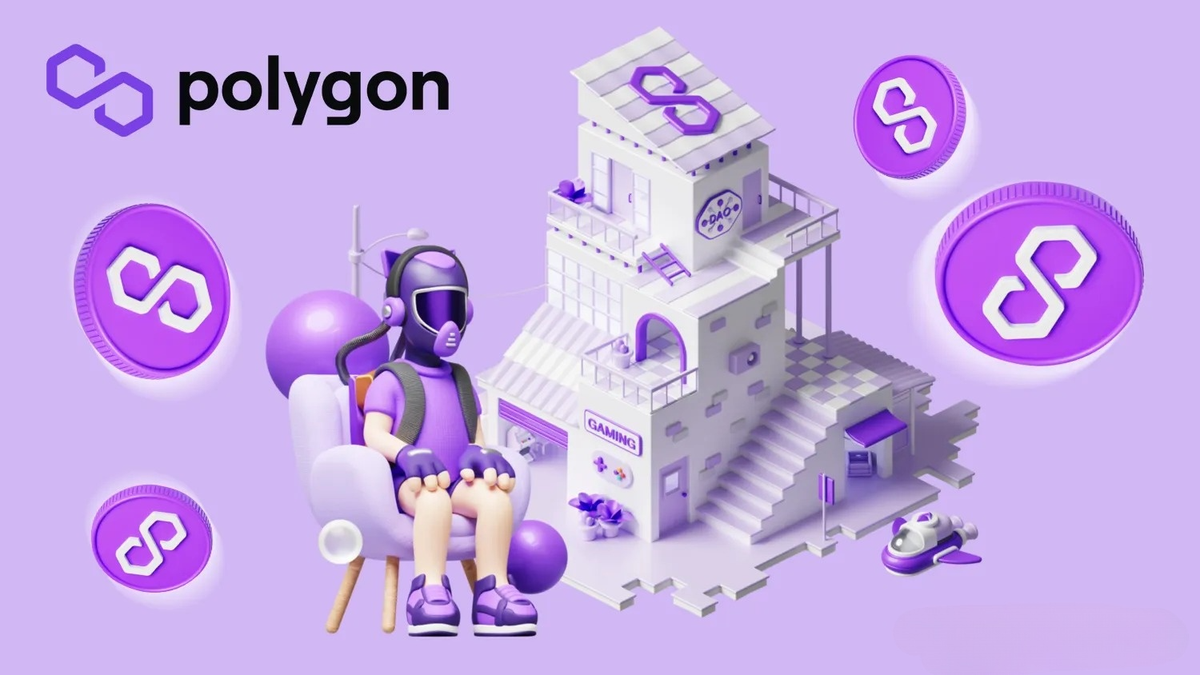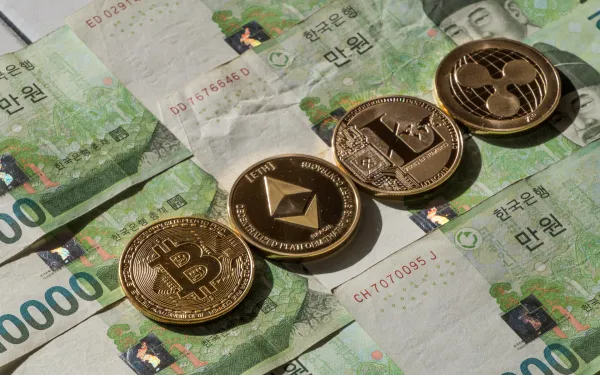5 Reasons Polygon (MATIC) Emerges as the Leading Blockchain for Web3 Gaming

As of now, with Ethereum network congestion issues yet to be fully resolved, Layer 2 solutions are showcasing their significant advantages.
Polygon is focusing on building blockchain infrastructure to enable fast, low-cost, and secure transactions.
The technology Polygon employs here is Zero Knowledge, also known as ZK solution.
Positioning itself as a platform for developing Web3 applications, Polygon is a Layer 2 project that scales Ethereum, allowing developers to build user-friendly DApps with fast transaction speeds and low transaction fees without compromising security.

Looking into Ethereum's network expansion roadmap, it's clear Ethereum will heavily focus on Layer 2 solutions.
In the future, Polygon will expand all Layer 2 solutions, including zk Rollups, Polygon Supernets, Polygon ID, and Polygon Avail.
In the Layer 2 segment, Rollup can be considered the leading solution.

The main reason zk Rollup is highly rated is because the confirmation time for zk Rollup transaction validity is the fastest.
Besides network scalability, zk Rollup still inherits Ethereum network security.
However, zk Rollup also has a drawback in that it is not EVM-compatible. That's why Polygon is currently focusing on developing ZkEVM technology.
Incompatibility with EVM means you cannot use Ethereum DApps and run them on Zk Rollup; you have to rewrite the source code for DApps from scratch, which is very cumbersome.
Polygon is working to change this by focusing on ZkEVM technology. This technology can address the single drawback of Zk Rollup.
Encouragingly, Polygon's Zk Rollup technology is now partially compatible with EVM. Evidence of this is the recent launch of the Polygon ZkEVM testnet in October 2022, with mainnet expected in early 2023, and I am eagerly looking forward to trying it out.
If ZkEVM technology successfully launches, it will reduce gas fees by 90% compared to Ethereum gas fees, process 2,000 transactions per second, and remain compatible with EVM.
We can use our favorite DApps like AAVE, Uniswap.
Building infrastructure is crucial, but all that technology won't mean anything without developers!
Developers
To create the best and most developer-friendly ecosystem, Polygon has launched Polygon Academy and Polygon University to guide developers on building DApps on Polygon.
Polygon Guild: creating opportunities for developers to meet and increase collaboration.

Additionally, Polygon Village provides considerable support for developers, such as recruitment, auditing, listing, and more.
These are evidence that Polygon truly creates a great experience and cares about the needs of developers.
Looking at statistics, we can see their efforts are truly effective.
You can see this chart from Messari, which shows that developer activity on the Polygon network remains stable even though the market is in a downtrend.
Tokenomics
Polygon's predecessor is Matic Network, and they use the MATIC token as the native token.

However, the name Polygon represents a significant improvement over the old name Matic, and no one calls this the Matic network anymore.
Polygon needs a new token symbol, such as POLY or PNG, to mark Polygon's development.
I think this is important because the MATIC token is only used for fees, staking, and regular voting. However, Polygon has improved a lot now, so they need a new token symbol to mark Polygon's breakthrough developments.
Polygon's development team knows this and planned it from late 2021. However, I haven't heard any more information about this issue so far!
Let's analyze tokenomics a bit more. A major issue is that validators staking MATIC tokens on the Polygon network receive very low rewards, and these rewards are due to MATIC token inflation.
These rewards only last a few years, and by then, validators may not even earn enough to justify their efforts.

I hope redesigning Polygon's tokenomics will happen in 2023 to address these issues.
Decentralization
Polygon's main goal is to increase decentralization across the network and all products built on the network.
They started doing this from early 2022 by establishing the Polygon Governance Team and Polygon DAO.
This is very positive because we are no strangers to criticisms of blockchain networks being too centralized.

On the Polygon network, there's a Multisigs Wallet that can control the entire network, controlled by only 5 individuals or groups.
I hope they can transfer control of this network governance to the community as soon as possible.
Regarding Polygon DAO, this is an interesting innovation. They have introduced a blockchain-native identity system focusing on privacy called Polygon ID.

Polygon ID can be programmed to empower everyone and allows for trustworthy interactions with web3 services.
Based on Zero Knowledge technology, Polygon ID allows you to vote for reputation building and verify information without disclosing any personal information; users can fully control their data.
Currently, Polygon ID is operational on the mainnet. Although very promising, it will be quite some time before we see the initial applications of this technology.
Collaboration with Leading Brands
This is a major strategy of the development team to widely apply the Polygon network.
In 2022, Polygon collaborated with global brands one after another. Highlights of recent project events include:
Meta allows users to mint NFTs on Polygon.
Starbucks partnered with Polygon for NFT reward programs.
Reddit teamed up with Polygon to enable NFT minting.
Nike launched an NFT clothing collection on Polygon.
Disney collaborated with Polygon to expand Web3 development.

They are also building relationships with banks and fintech companies, as they supported the Singapore government and JP Morgan in testing transactions on the Polygon network.

They also partnered with Brazil's Nubank to launch tokens for over 70 million users on the Polygon network.
Not only stopping at traditional financial companies and Web2, Polygon has collaborated with a host of entertainment and gaming companies on NFT games, metaverse.
This strategy will help Polygon gain massive network traffic in the near future.
NFT games built on Polygon
Explore 300+ NFT games built on the Polygon network: [Polygon Ecosystem Link]
Read more: Top 10 Notable NFT Games on the Polygon (MATIC) Network
Guide to playing NFT games on the Polygon network
Step 1: Join the NFT game community
For the best experience in playing NFT games, you should join an NFT game community to play with, Gamefinity has a community on:
Twitter: twitter.com/Gamefinity_CM
Telegram: t.me/gamefinitygroup
YouTube: youtube.com/@Gamefinity
Step 2: Create a MetaMask wallet
If you don't know how to create a MetaMask wallet to play NFT games, you can find the guide here.
Step 3: Connect your MetaMask wallet to the Polygon network
Step 4: Buy $MATIC on major exchanges like Binance, Bybit, or MEXC.
Step 5: Buy NFTs on trading platforms like OpenSea or Magic Eden.



